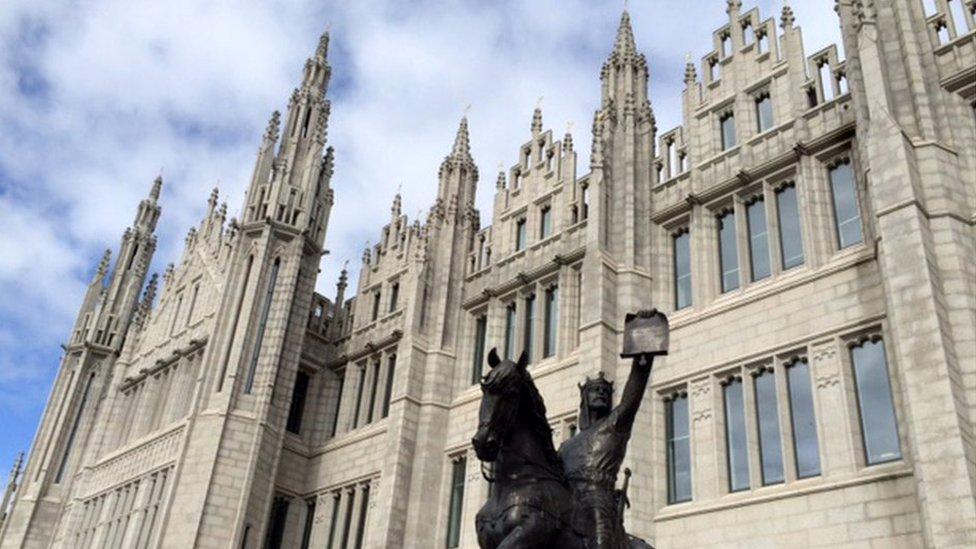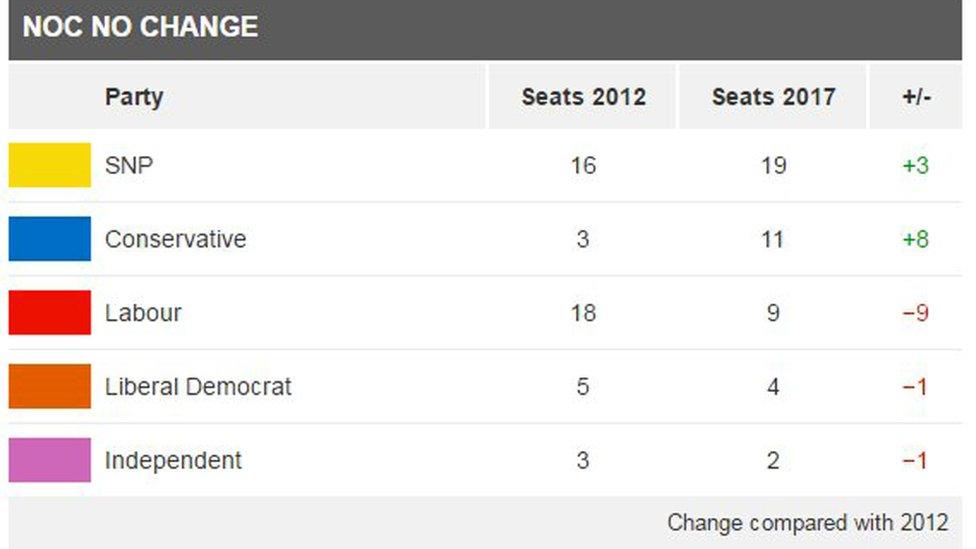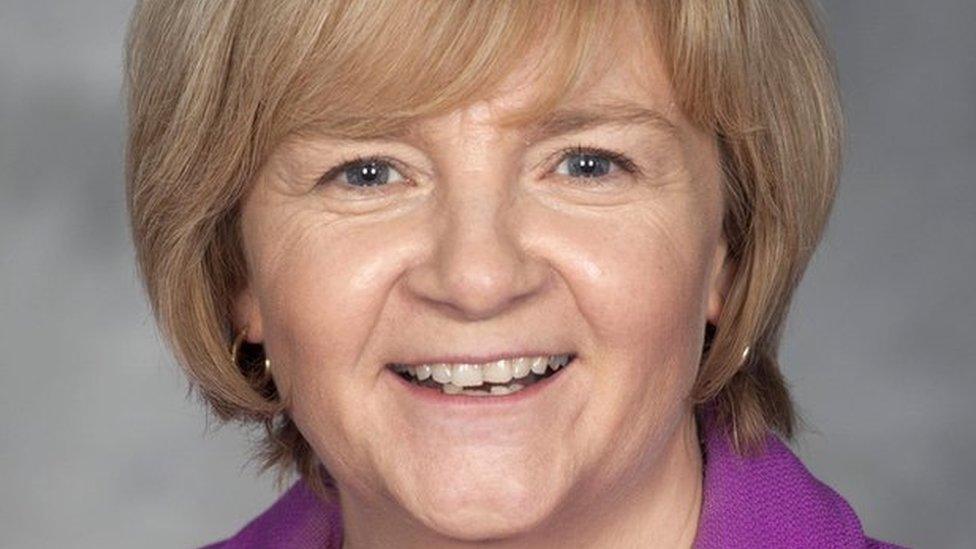Council coalitions and party divisions
- Published

Labour councillors in Aberdeen have signed a coalition deal with the Tories against the wishes of central office
There are few certainties in electoral politics. One may presume baby-kissing. Further, it can be taken as read that candidates, on encountering the juvenile offspring of voters, will scarcely be able to avoid breaking into childish ditties, hummed or chanted according to choice.
However, there is one other element that is generally regarded as a constant. Voters, it can be presumed, tend not to favour parties which display elements of division.
This is fairly logical, if you think about it. The sensible voter - and, despite occasional caricatures, that is most of them - will generally prefer to lend support to a party which appears to present a common front to the world, rather than a disparate offer.
What, the sensible voter asks, are we getting for our cross on the ballot paper? Are we getting the version of this party presented by Leader A or the alternative scenario sketched out by would-be Leader B?
Such division afflicts all parties at sundry points. It is customarily accompanied by zealous demands for internal unity. Unity under whom, customarily retort the combatants, gearing up for another squabble.
There is something uniquely attractive to politicians about in-fighting. After all, the other lot are simply opponents. Those on your own side are potential enemies; rivals for advancement, jobs and the leader's favour.
Now, that is rather a long and wordy preamble to chatting about a development which is rather lower league than the full-blown internal battles we have occasionally witnessed in the past. But which, nonetheless, is about disunity or internal disagreement.

Kezia Dugdale has threatened to suspend councillors who go against the party's Scottish executive
Scottish Labour is in a bit of a flap as a result of fall-out from the local elections earlier this month. Naturally, said flap is potentially - I stress, potentially - washing over into Labour's campaign for the UK general election.
You will perhaps be already familiar with the basics. The Labour group in Aberdeen City Council has signed a coalition deal with the Conservatives and Independents, thus deftly cutting out the SNP, which is the largest party.
Up with this Kezia Dugdale will not put. The party has issued a statement condemning the deal in strong terms, noting that Labour cannot reach any electoral accommodation if it would "result in further austerity being imposed on local communities".
It adds that Labour councillors in the Granite City should stand down from this deal or face possible suspension from the party.

The SNP have the most seats on Aberdeen City Council but are set to be frozen out of running the city hall
A number of thoughts occur in fairly rapid succession. Labour's Scottish executive did not explicitly rule out deals with the Tories (the SNP did).
Rather, Labour's prohibition was upon coalitions which promoted austerity, however defined. Today's statement re: Aberdeen, effectively, equates the Tories with a pro-austerity approach. Given that, perhaps they should have made the bar upon talking to the Tories more explicit - although one appreciates the dilemma between a nationwide approach and local democratic discretion.
Secondly, there is that local v national factor. I worked as a journalist in Aberdeen as a youth and can well remember the attitude of the North-east towards the central belt. Aberdonians are proud people who dislike being told what to do by folk from Edinburgh or Glasgow.
Thirdly, there is pragmatism v politics. Every mainland council ended up in No Overall Control as a consequence of this month's local elections. That means haggling. That means bargaining.
Labour lost ground but retained sufficient clout and sufficient numbers to be significant players in several councils. So they are too small to govern on their own or in coalitions entirely of their own choosing. But they are too big to retreat entirely into the doctrinal purity of opposition.
Does any of this matter? Well, it matters in Aberdeen where local governance is under challenge and contest. It matters elsewhere in Scotland where similar discussions are being held, if not with the same outcome.
Does it matter in the UK general election? One must be careful not to overstate the issue. The majority of voters, arguably, will pay minimal heed to this controversy. Some may be impressed by Scottish Labour's determination seemingly to stand firm against the Tories.
Others, though, may wonder what it says about Labour's deftness of touch. The party's statement today concludes by noting that "voters across Scotland have a chance to reject further austerity and a divisive second independence referendum by voting Labour on June 8." Will today's development help or hinder that prospect?
- Published17 May 2017
